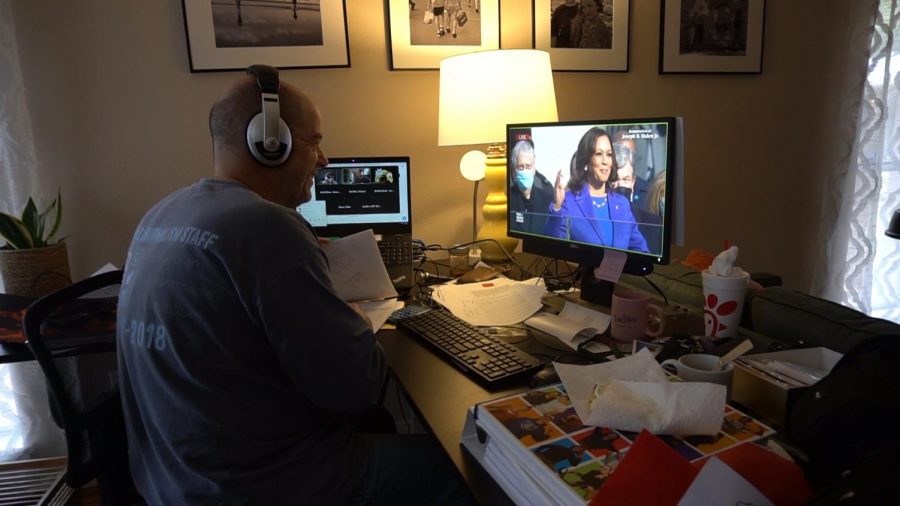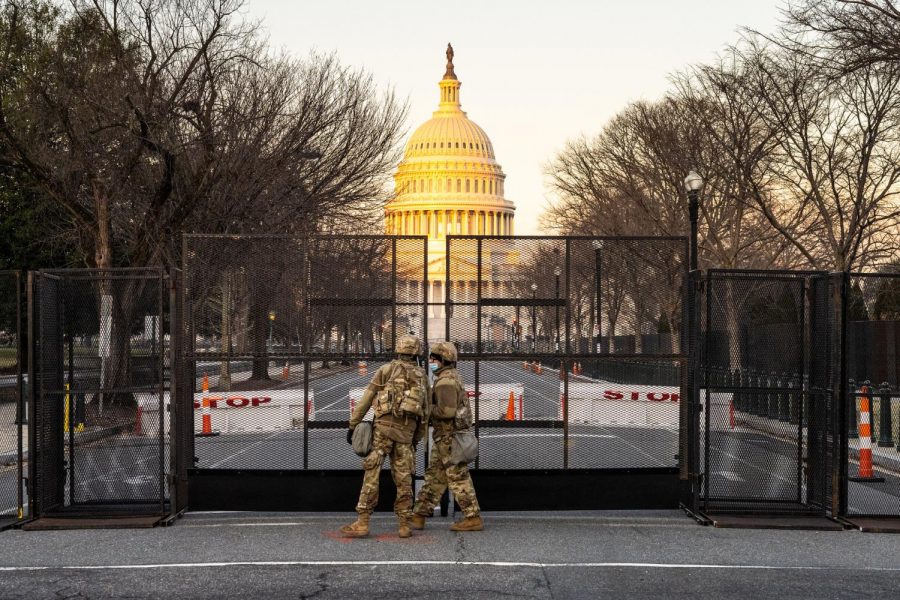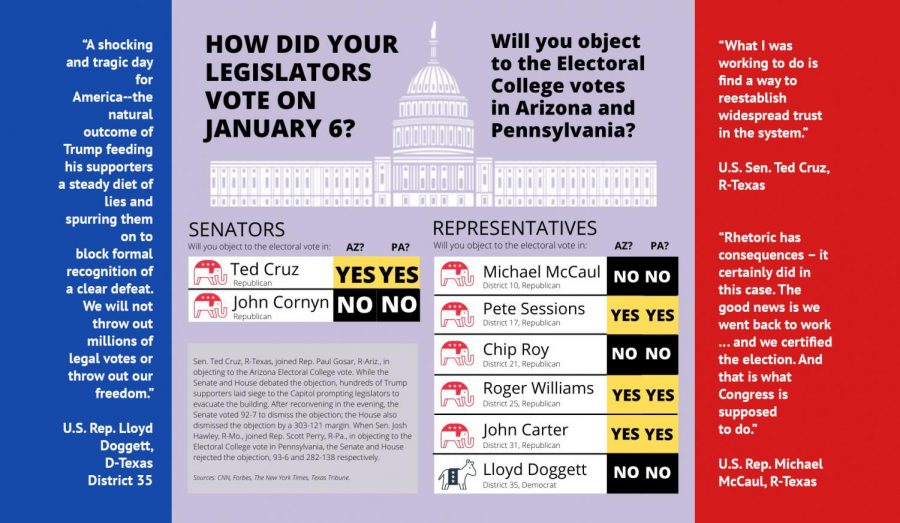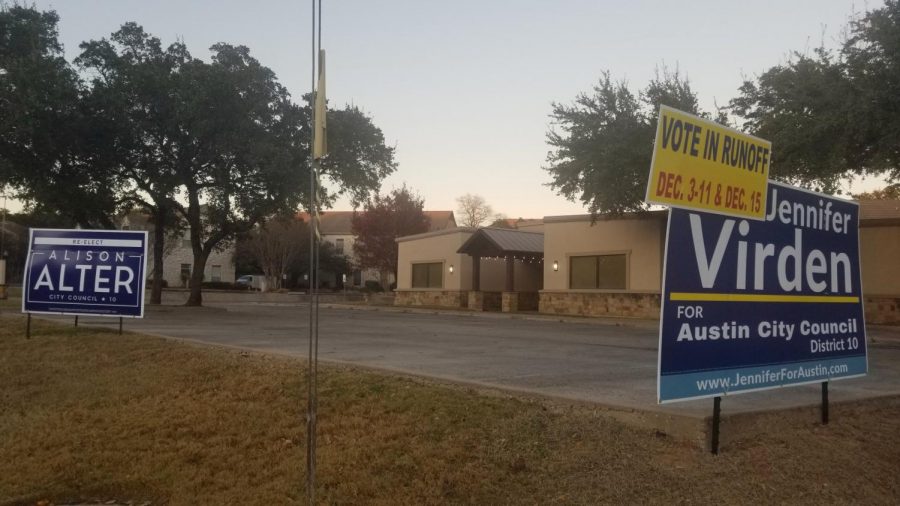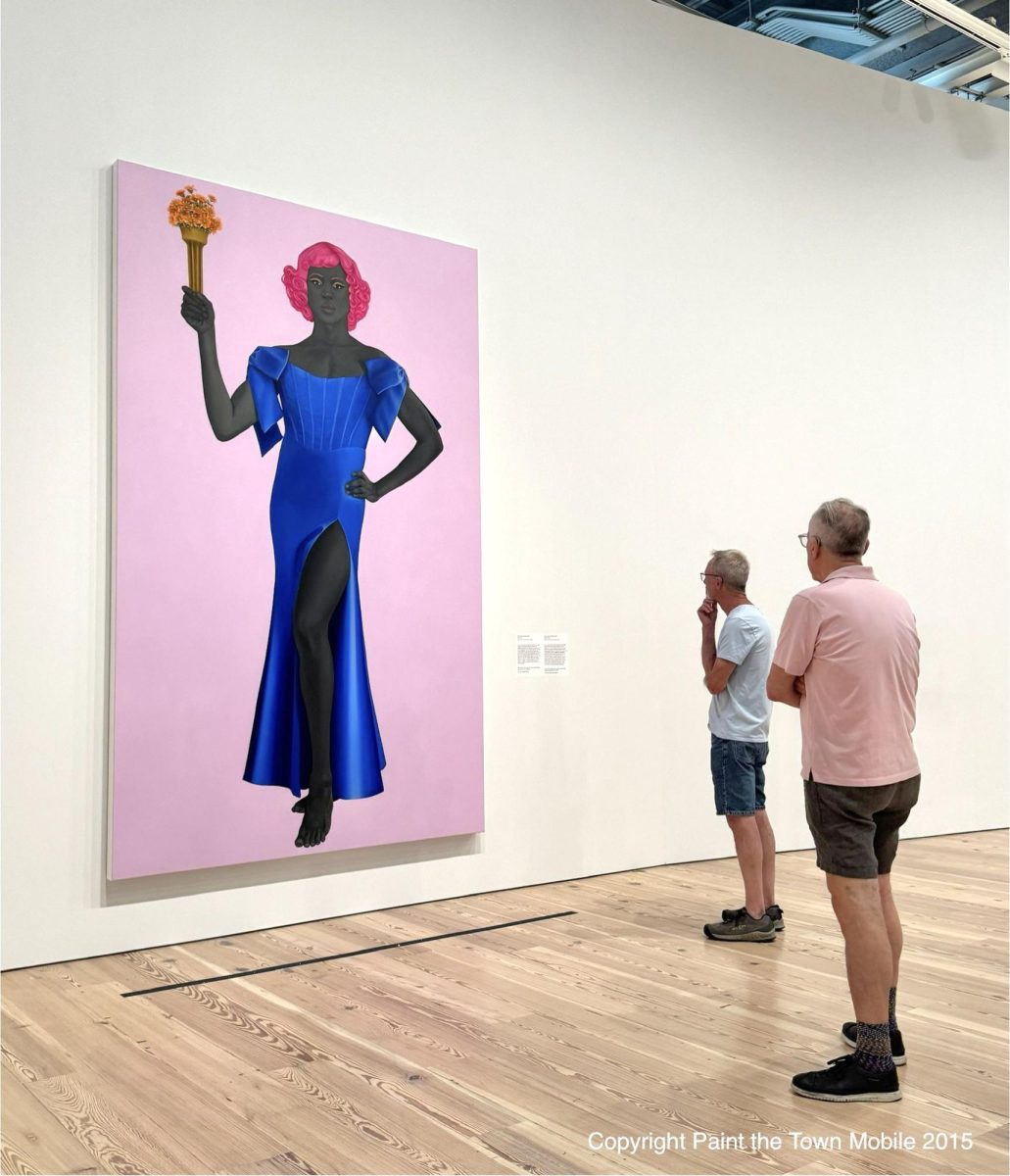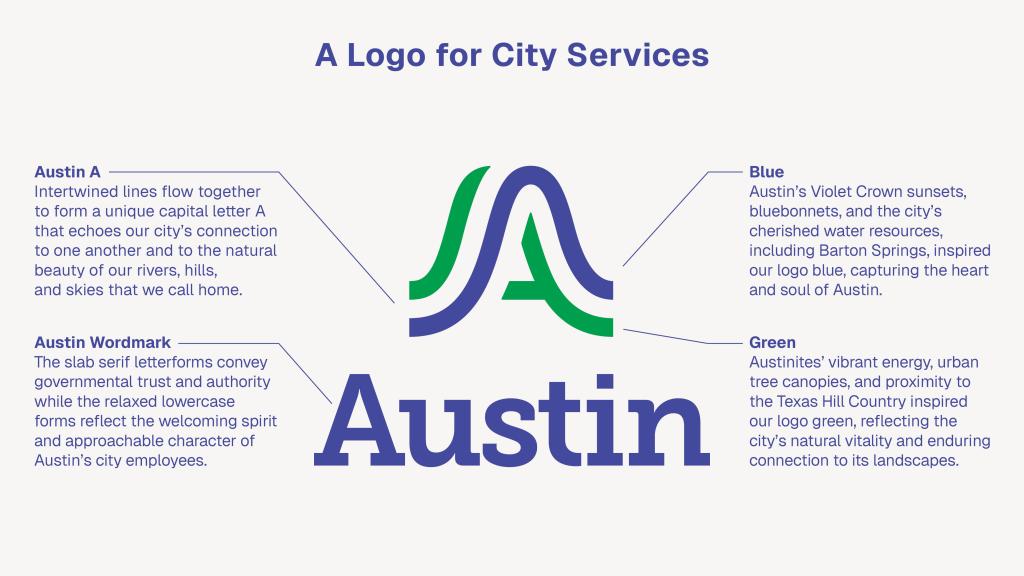Three words were all I cared to derive from Donald Trump’s scattershot ramblings during Sept. 10’s debate against Vice President and Democratic presidential nominee Kamala Harris. Or, at least, they were the ones that managed to stick with me:
“She is Biden.”
If I could go back in time and talk to myself six months ago, when I wrote my first column on the election, I wouldn’t know where to begin. With the Democratic frontrunner switcheroo in July? The first debate in June? The multiple attempts on Trump’s life? What about the candidates’ VP picks? The options are seemingly endless.
Indeed, a lot has happened since I published that first story. This is inarguable. But has anything really changed?
“She is Biden…”
Trump said more than that, of course, but this was as much as could be quoted from the former president before he delved back into some of his grosser agenda-pushing.
It should be noted the context in which this accusation was made, that being during the “discussion” of the candidates’ economic policies. Harris deflected the claim, obtusely observing that she was, in fact, “clearly not Joe Biden.” You could simply call it there, if you enjoy interpreting things on a purely literal basis; for the rest of us, though, this assertion may have aroused suspicion.
After all, how exactly is Harris any different from the current president?
Aside from all the pomp and circumstance, the two are nearly identical from a policy standpoint. While a vote for Harris may not literally be a vote for Biden, it is undoubtedly a vote for Bidenism. Although performatively unique, Harris’ economics are effectively Bidenomics, her foreign policy mostly Biden’ foreign policy, the same going for healthcare, gun control, and so on. Minor differences do exist between the two, Harris sporting a bit more transparency on abortion here and inflation reduction there, but these are largely negligible in the grand scheme of things.
Since Harris’ nomination, Americans on both sides of the aisle have complained that she hasn’t done enough to make her unique stances on the important issues known, but as the election race goes on, it becomes increasingly evident that the reason she’s struggled to do so is because she doesn’t have much to say that her predecessor hasn’t said already.
And yet, since Biden dropped out of the race, Harris has enjoyed an outpour of popularity from nearly every corner of the non-MAGA political community. One wouldn’t be mistaken for thinking the media has become just as obsessed with her as they are with Trump—and that’s really, really saying something. She’s packing stadiums with tens of thousands, she’s tossing back beers with Steven Colbert, she’s getting endorsed by, wait—Dick Cheney?
If you live in a blue city, you already know: bumper stickers, banners, 1,000 different yard signs, unusual and vaguely inappropriate references to a certain green electropop album…this is 2012-Obama-levels of hype we’re talking about. Granted, it’s eased up over the past month, but the most troublesome fact remains… I don’t know if I’ve ever seen so many leftists get excited for someone whose entire game plan is openly the same as the moderate with the 40% approval rating.
Now, this isn’t necessarily a complete negative. In spite of any previous criticisms, I am among the scant few who believe that the Biden administration hasn’t been a universal failure (there are dozens of us out there). Needless to say, he wasn’t perfect, but from the long-overdue military withdrawal from Afghanistan (although a mess) to passing significant climate legislation (although he defended fracking), combined with strongly populist rhetoric (although the minimum wage hasn’t been this weak since the 1940s), one can’t deny that he’s had a decently productive four years. For a man of his age.
Nevertheless, Biden did have his fair share of glaring issues, and with Harris being his pronounced successor, she appears set to carry forward perhaps the worst of them.
The single most surprising line to come out of Harris’ recent speeches has been her repeated declaration that as president, she would “ensure America always has the strongest, most lethal fighting force in the world.” For countless war-weary Americans, this claim was bound to raise an eyebrow. This is something you would’ve expected to hear from George Bush, or maybe Barack Obama on a bad day, not a supposedly liberal presidential candidate during a rare time of relative peace in our country. After all, if we aren’t at war, why make your rhetoric so warlike?
Yeah, remember when I said Dick “War on Terror” Cheney fully supported Kamala Harris? Time to remember why that’s a bad thing.
There are two conclusions that could be drawn from Harris’ statement: either she’s pandering to war hawks (and let’s not start unpacking the spread of militarism from the right to the left over the past 10 years) or she’s actually invested in this traditionally right-wing idea of a “lethal” military. Neither possibility is a particular relief. While national security is a concern for many, most Americans are tired of military interventionism; even a Republican like Trump has been championed by supporters as the “peace president.” And while this may have been Harris’ first major misstep, it’s far from the last.
Israel’s increasingly aggressive military actions in the Levant are no doubt also to blame for Harris’ militaristic attitude, actions that are at the forefront of the United States’ foreign challenges. President Biden suffered perhaps his heaviest valid criticisms over this issue, and deservedly so. There can be no doubt that the United States under Biden’s watch has been instrumental to the genocide currently being conducted by Israel on the people of the Gaza Strip, and if Harris’ half-answers of how “Israel has the right to defend itself” are any indication, that doesn’t seem set to change anytime soon.
Being an apologist for an ethnic cleansing and war crimes will undoubtedly be a dealbreaker for many potential voters, and given Trump’s position as the significantly more undesirable choice in every regard, at least for the average Palestine defender, they might end up sitting out of the race entirely. It may be among the foremost reasons this election is still in jeopardy for the Democrats, in spite of facing the most controversial figure in the history of modern American politics.
Not to say that support for Israel is the only obstruction to the Harris campaign; the vice president, having been given an operative role in border control under the Biden Administration, continues to promote a hostile stance towards Central and South American immigration, concerningly evocative of the Republican rhetoric of only a few years ago.
Harris’ proposed restrictions would’ve been laughed off by the Democrats of the 2010s: new constraints to the asylum application process, along with plans for new detention infrastructure along the border and other pseudo-Trumpian measures, are simply unpalatable for many left-leaning voters. Some may begin to question when the Democratic Party became so comfortable with bending the knee to a GOP that continues to fraternize with extremism and xenophobia.
These facts, although inescapable, are nevertheless disheartening, especially so for someone who held out the faintest hope that perhaps Harris could offer America something more than merely a defense of the status quo. The more we see of her, however, the more the truth becomes apparent: that should Harris win, we shouldn’t expect progressivism, but rather the continuation of an increasingly senescent Democrat playbook.
Does any of this mean that you shouldn’t vote for Harris in November? That decision remains up to you, although the competition isn’t exactly enticing. Everyone has an opinion on Trump at this point, and a large factor in whether you decide to vote will hinge on how badly you want him to lose (or win, I guess). Considering how the Harris hype train has predictably died down, especially in lieu of the DNC and the debate, and with current polls indicating both candidates to be neck-and-neck, we can certainly expect a close race. In spite of recent enthusiasm, America has underestimated Donald Trump before, and to paraphrase what one correspondent at the DNC so forebodingly noted, “The ghost of 2016 looms over this whole thing.”
If Harris’ continued slipping down the polls is any hint, she’s in dire need of a change in PR. Granted, retaining moderate support and somehow also distancing yourself from Biden — it’s no easy task. But these are desperate times. Democrats always talk a big game about having so much at stake; it would be great if, for once, they acted like it.
This trend towards centrism shouldn’t be so surprising: no Democrat can hope to win without attracting those in the middle. There’s a reason Bernie Sanders never won the presidency, and it’s not for a lack of trying. What disturbs me is the possibility that, in their attempts to please the center-right, the Democrats may have actually bought into it. There’s a large portion of young voters who’ve grown disillusioned with a Democratic party that continues to stray further from their interests. I thought Kamala Harris could’ve been the person who gives them a reason to care again, but as time goes on, the more she continues to prove me wrong.
“We’re not going back,” sure…but don’t expect to go forward, either.




